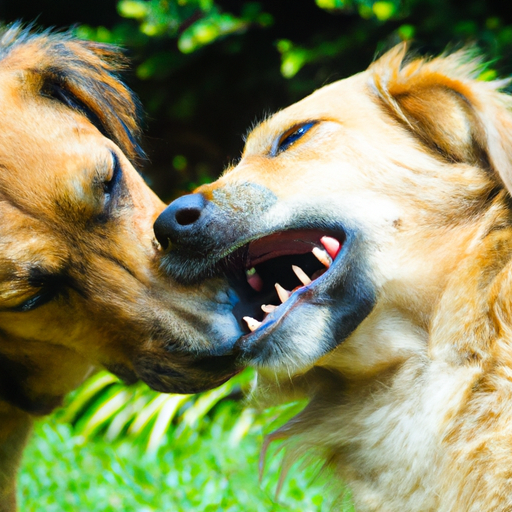As a caregiver, you are constantly observing and analyzing the behavior of your loved ones. You pour your heart out to ensure their well-being and happiness. When it comes to your furry friends, their actions might leave you puzzled at times. One such behavior is dogs licking each other’s mouths. Through this article, we will explore the reasons behind this intriguing behavior.
H2: Understanding Canine Behavior
Understanding why dogs lick each other’s mouths requires us to delve into canine behavior. Dogs, like humans, have a language of their own. They communicate their emotions and intentions through gestures, postures, and actions. Licking the mouth of another dog is one such expressive action.
-
Submission: Dogs licking the mouth of another is often a sign of submission. It is their way of showing respect to a more dominant dog.
-
Affection: Dogs also lick each other’s mouths to express love and affection, similar to how humans show affection through hugs and kisses.
H2: The Science Behind the Behavior
The scientific explanation behind this behavior relates to the dog’s evolution from wolves. Wolves, living in packs, practice mouth licking as a part of their social structure.
-
Influence from wolves: Puppies in a wolf pack lick the mouth of adult wolves as a signal for them to regurgitate pre-digested food. This is a survival tactic, ensuring the puppies get enough nutrition.
-
Imprinting: Dogs, evolved from wolves, have retained some wolf-like behaviors, including mouth licking.
H2: Health Implications
While this act is often harmless, as a caregiver, you should also be aware of potential health implications.
| Concern | Description |
|---|---|
| Infection | Dogs can transmit diseases to each other through saliva. |
| Aggression | If a dog is not receptive to mouth licking, it could lead to fights or aggression. |
H2: Should You Be Concerned?
Typically, mouth licking is an innocent behavior. However, excessive licking might indicate health issues like nausea or dental problems. If you notice any unusual behavior or if the licking leads to aggression, it is advisable to consult a vet.
H2: How to Respond
Understanding the context and responding appropriately is crucial.
-
Respect their communication: If the dogs are comfortable with each other and are showing no signs of distress, let them be.
-
Monitor: Keep an eye on their interaction to ensure it doesn’t escalate into aggression.
FAQ
Q: Is mouth licking always a sign of submission?
A: Not always, dogs also lick each other’s mouths to show affection.
Q: Should I be worried if my dogs lick each other’s mouths frequently?
A: Frequent licking could be a sign of underlying health issues. It’s best to consult with a vet.
Q: Can my dog get sick from licking another dog’s mouth?
A: Yes, diseases can be transmitted through saliva. However, it’s relatively rare.
Remember, as a caregiver, you are the safe haven for your loved ones, including your furry friends. Understanding their behavior and responding appropriately ensures a happy, healthy environment for them.



